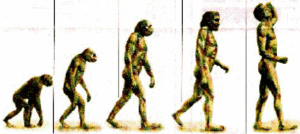Bias
The Dangers of Dehumanization
Research suggests that anti-Immigrant rhetoric makes all Americans less safe.
Posted March 7, 2017
The Implicit Association Test (IAT) has recently come under fire. One of the main criticisms has been that the IAT for race does not seem to correlate with discriminatory behavior. This criticism stings, as the behavioral link has been one of the main reasons for excitement about the test. It appeared that we had a tool that could fairly easily uncover biases people didn't know they had, but which had real and serious consequences for their interactions with others. Alas, the evidence suggests otherwise.

Yet the 2016 election and recent actions by the Trump administration make it difficult to deny that there are many Americans who feel very strongly that certain groups, especially Mexican and Muslim immigrants, do not belong here. At times, this sentiment has been expressed in dehumanizing ways. And research in social psychology suggests that this is no mere coincidence.
It appears that dehumanization is correlated with support for the priorities of the Trump administration. When someone considers Muslims to be less human, they are more likely to support policies such as a ban on Muslim immigration to the United States. Moreover, those who are more likely to consider certain groups of people less human are more likely to support Republican candidates, such as Trump.

Researchers tested for dehumanization using two measures. First, they presented subjects with an "Ascent of Man" image and asked for a rating from 0 (far left image) to 100 (far right image) for different groups (e.g., Mexican immigrants, Muslim immigrants). Then they asked how well various terms (e.g., "savage, aggressive" or "refined and cultured") described members of these particular groups on a scale of 1 (not at all) to 7 (very much so).
Not only did they find that dehumanization of immigrant groups correlates with support for Trump's policies, but they also found that being dehumanized results in "meta-dehumanization." Mexican and Muslim residents of the United States who felt dehumanized by Trump and his supporters were likely to dehumanize those who dehumanized them. In addition, they were likely to support hostile responses (e.g., spitting in the President's face). This suggests that dehumanization leads to a vicious cycle, one that puts society on a path to greater hostility.
This research is especially timely. Two of the major criticisms of (both versions of) Trump's travel ban are that it is discriminatory and that it will not make America safer. The claims about discrimination often appeal to Trump's own statements during the campaign and transition. The research discussed here suggests that these statements may have helped him to win the presidency. But it also suggests that the rhetoric surrounding the travel ban will not make America safer. To the contrary, it is likely to further propel us into a feedback loop of dehumanization and mutual hostility.


